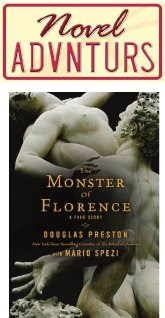 From the Publisher's Website:
From the Publisher's Website: In this stunning new book, Malcolm Gladwell takes us on an intellectual journey through the world of "outliers"--the best and the brightest, the most famous and the most successful. He asks the question: what makes high-achievers different? His answer is that we pay too much attention to what successful people are like, and too little attention to where they are from: that is, their culture, their family, their generation, and the idiosyncratic experiences of their upbringing. Along the way he explains the secrets of software billionaires, what it takes to be a great soccer player, why Asians are good at math, and what made the Beatles the greatest rock band.
Brilliant and entertaining, OUTLIERS is a landmark work that will simultaneously delight and illuminate.
Brilliant and entertaining, OUTLIERS is a landmark work that will simultaneously delight and illuminate.
For me, Gladwell's books are very engaging. It's like he is solving an almost unsolvable puzzle in front of your eyes and is actually going to share the secret with you this time! It's very rewarding to read. Though Outliers is no Tipping Point (my favorite) it still works in just the same way.
Gladwell talks about people who just because of a different set of circumstances end up doing far better than their equal counterpart, a bit of the nature vs. nurture debate comes into play in my mind. Yes, some of his findings end up being pretty logical but they are not connections I would have made on my own without tons of thought. He uses a variety of examples to make his case.
I really liked the hockey tryout cut-off date example he uses. Because of the hockey tryout cut-off date of January 1st in Canada, people born in the few months following that always end up getting picked because they are the largest and most mature of all the people trying out. And then because they get picked and get the training that makes them the champions they become.
A frightening section is one where Gladwell talks about plane crashes. We get to read snippets of black box recordings and it's crazy how restrained some people in the cockpit were moments before a crash. Because, according to Gladwell, their culture has told them to behave in a certain way and to respect authority or higher-ups even if the higher up is in the wrong. I could go on and on listing all the examples because they all added something to his argument.
I thought it was smart how Gladwell uses his own family as an example because throughout the book he's basically making a case for how someone can't be a genius all on their own (which sometimes people claim) and there are many factors that play into their success. Using his family as an example helps show he really isn't trying to put anyone down with his arguments.
Outliers is an engrossing book full of logical but eye-opening arguments held up by great examples.
4.5/5 Stars
Review copy provided by publisher
Review copy provided by publisher
Do you like Pop Psychology books, if so what's your favorite?































